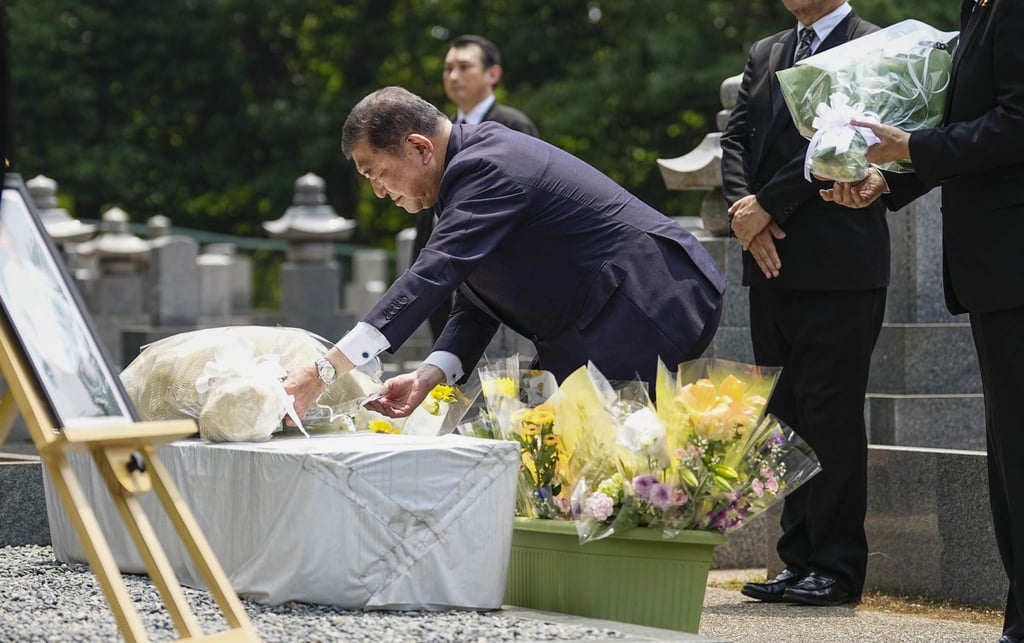Three years after the assassination of Shinzo Abe, Japan’s longest-serving prime minister, his legacy continues to cast a long shadow over a struggling ruling party and an embattled successor, fuelling a wave of public nostalgia ahead of Sunday’s crucial upper house election.
Abe, remembered as a polarising yet dominant figure who shaped Japan’s modern conservative identity, was gunned down on July 8, 2022, while campaigning in the city of Nara.
Prime Minister Shigeru Ishiba quietly observed this year’s anniversary by laying flowers at the site of Abe’s murder, in what some saw as an effort to tap into his predecessor’s enduring public appeal.
In Abe’s hometown of Nagato in Yamaguchi prefecture, his widow Akie placed flowers on his grave, telling reporters: “He was able to work hard for the country, feeling at ease thanks to the support he received in elections.”

She was joined by Sanae Takaichi, a former cabinet minister who was once widely seen as Abe’s natural heir on the nationalist right. “I feel frustrated when I hear people wondering how the world would have changed and how Japan would have been if Abe had been alive,” Takaichi said.


